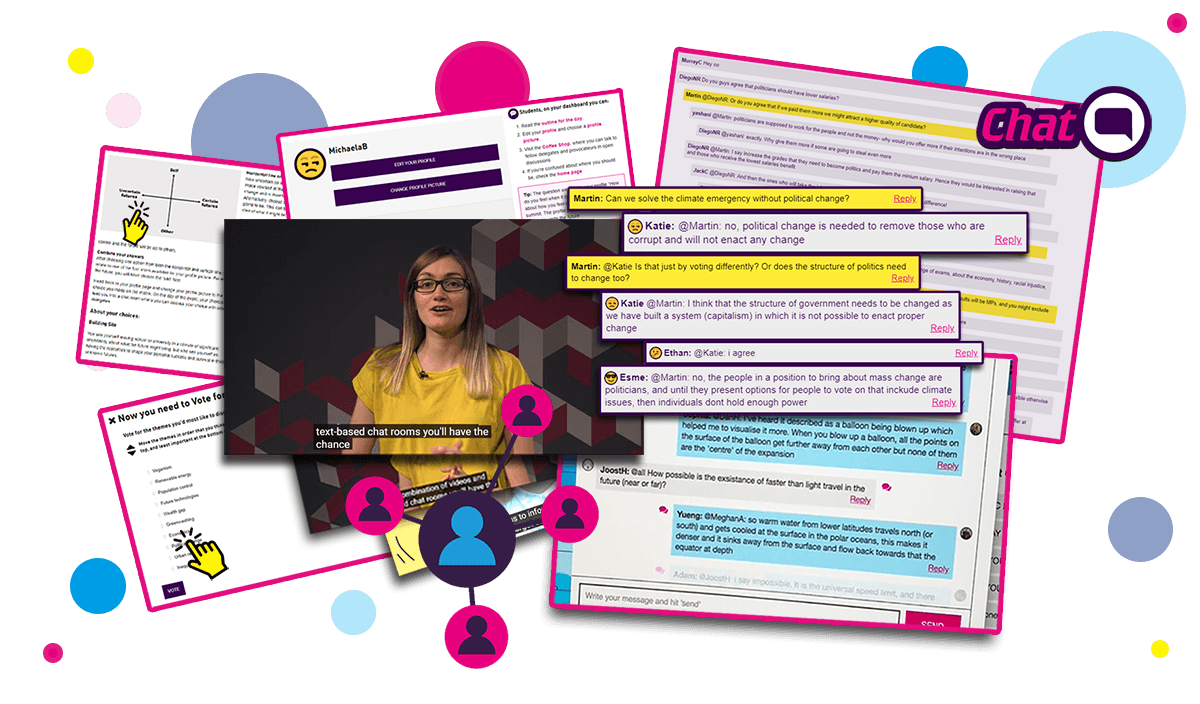
While teachers come to I’m a Scientist for tried-and-tested STEM engagement with in-built safeguarding, they also find lots of additional benefits to text-based communication for their students.
During the COVID-19 pandemic, video conferencing (with all its glitches and delays) quickly became the norm. However, when the Royal Institution Youth Summit was not able to take place in-person in October 2020, I’m a Scientist was chosen to host the summit online.
“
“Without the need to rely on an audio or video connection, participants have much more of an equal voice.”
As with Youth Summits in previous years, school students were able to discuss topics like “How do I feel about climate change?” with peers; watch short films designed to provoke debate; and work in groups to present information in a plenary session at the end of the day. The only difference? The discussion was all text-based.
Online sessions are naturally easier to attend for students who live far away from the venue – all they need to take part is an Internet connection and a web browser.
Without the need to rely on an audio or video connection, participants have much more of an equal voice, and can “listen” to others with less chance of dialogue being missed.
The Royal Institution Online Youth Summit was a departure from I’m a Scientist’s usual online events – it was a period of condensed activity in one dedicated online space, and students were encouraged to chat with peers (not scientists). We’re looking forward to using what we’ve learned to host the DETI Youth Engagement in Environment and Sustainability Summit in October 2020.
View the full report on the Royal Institution Online Youth Summit ❯
These summits establish the I’m a Scientist platform as a genuine alternative to in-person conferences and summits – something that will work beyond the COVID-19 pandemic, too.
If you are interested in hosting an event using the I’m a Scientist platform, please contact Shane McCracken at shane@mangorol.la
Recent Comments
No comments to display